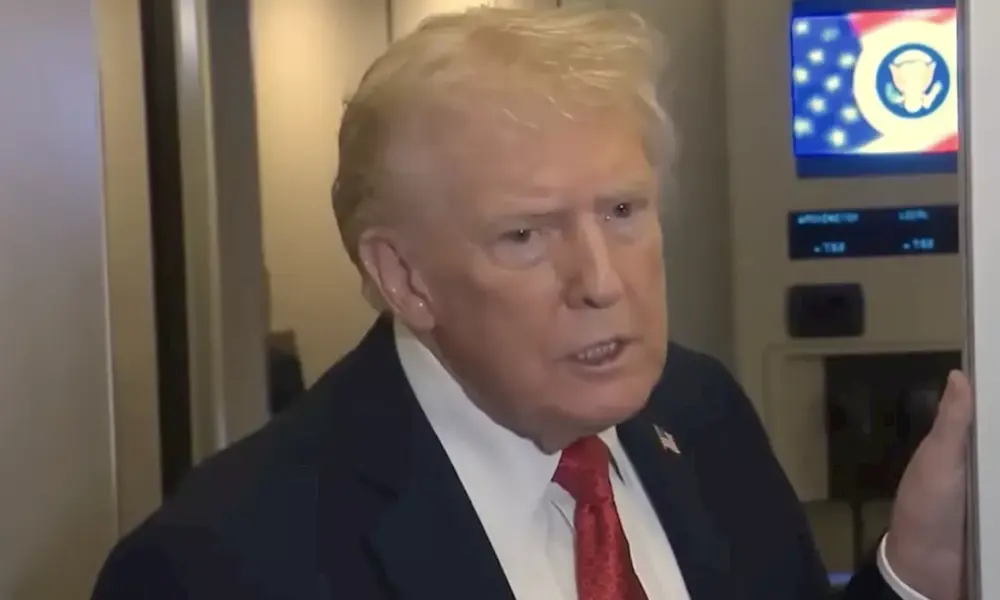UPDATE: President Donald Trump is facing backlash over a recently announced $20 billion financial aid package for Argentina, coinciding with significant market share losses for U.S. soybean farmers. Critics are questioning the timing and implications of this support as Argentina grapples with economic turmoil.
In a heated exchange, Trump defended the bailout, stating, “Argentina is fighting for its life. They have no money. They have no anything.” This comment comes as the South American nation’s peso continues to plummet, exacerbating the economic crisis. The aid aims to stabilize the currency and address Argentina’s severe foreign exchange shortages, but many U.S. farmers are concerned about the potential for increased competition from Argentine soybeans.
The backdrop of this aid package is critical, especially as U.S. soybean farmers face challenges due to Trump’s ongoing trade war with China. Following the imposition of tariffs, China has shifted its sourcing to South American nations like Argentina, which recently removed export tariffs to boost foreign currency flow. As a result, China purchased approximately 7 million metric tons of soybeans from Argentina shortly after the removal of these tariffs.
Economists warn that while the U.S. aid does not directly harm American soybean producers, the optics are troubling. Chad Hart, an economist at Iowa State University, emphasized, “The South American soybean crop was good this year and is expected to grow next year.” This increased production raises concerns for U.S. farmers already struggling with diminished access to the Chinese market.
Amid these developments, Trump is also under fire from Democrats who draw parallels between the scale of the aid package and the potential doubling of health insurance premiums for those relying on the Affordable Care Act if enhanced subsidies are not extended. Senator Brian Schatz of Hawaii highlighted that both financial commitments are similarly sized, raising questions about priorities during a government shutdown.
As U.S. farmers continue to voice their frustrations, the aid to Argentina is perceived as a reward for a country that is taking away their business. Critics argue that this financial support could involve purchasing Argentine bonds at inflated prices, risking U.S. taxpayer dollars.
Looking ahead, the situation remains fluid as Trump’s administration explores additional financial assistance to Argentina, potentially doubling the initial aid package. As the economic landscape shifts, U.S. farmers are left to navigate an increasingly competitive environment, with their livelihoods at stake.
This urgent situation raises critical questions about the future of U.S. agriculture and the implications of international aid. How will soybean farmers respond, and what will be the long-term effects of this financial assistance on both U.S. and Argentine economies? Stay tuned for more developments as the story unfolds.







